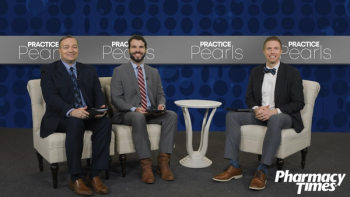
With their closing thoughts, the panelists explore unmet needs in the landscape of adult RSV vaccination.

With their closing thoughts, the panelists explore unmet needs in the landscape of adult RSV vaccination.

Key opinion leaders traverse the challenges associated with vaccine hesitancy.

Gretchen Garofoli, PharmD, an associate professor at the West Virginia School of Pharmacy, discusses the current recommendations for COVID-19, respiratory syncytial virus (RSV), and influenza vaccines and vaccine hesitancy.

Christina Madison, PharmD, FCCP, AAHIVP, discusses disparities in patient populations directly influencing limited access to appropriate treatment and preventative care.

Chad Worz, PharmD, BCGP, FASCP, discusses how vaccine hesitancy and misinformation about flu vaccines create barriers to annual flu immunizations.

Randy McDonough, PharmD, MS, BCGP, BCPS, FAPhA, discusses his experience with vaccine hesitancy and factors that may lead to it.

The significance of engaging patients and providing key educational points regarding pneumococcal vaccines is highlighted.

Electronic health record utilization and financial considerations for RSV vaccines in adults are overviewed by Drs Madison and Welch.

Dr Haumschild drives a discussion around what pharmacies and health care systems can expect from RSV infections in adult patient populations.

Drs Haumschild, Anderson, and Hinojosa provide their closing thoughts regarding treatment considerations for patients with RRMM.

Navigating treatment toxicities is paramount to achieving treatment goals in MM management.

Medical experts discuss clinical, social, and economic obstacles limiting pneumococcal vaccination efforts.

The panelists discuss the evolution of the pneumococcal vaccine landscape.

Experts discuss strategies that can be employed to communicate the significance of yearly flu vaccines to patients and improve patient- centered care offered by pharmacists.

A panel of experts review the criteria used to select a specific high-dose flu vaccine formulation for immunization.

Author of the book The Journey’s End discusses how extending life at all costs takes away time that patients could be spending with their families during the last moments of their life.

The medical experts discuss strategies to achieve treatment adherence.

Social determinants of health inhibit optimal impact of MM treatment.

Financial, clinical, and social barriers to adult RSV vaccination are explored.

Medical experts discuss the lack of RSV treatment leading to the importance of immunization.

A panel of experts discuss the state of biosimilars today and the importance of standardizing knowledge of the field.

Specialists assess how flu vaccines enhance immunity across various age groups against influenza.

Experts analyze the process by which the Advisory Committee on Immunization Practices formulates vaccine recommendations and updates them, and the implications and effects of these decisions.

Secondary pneumococcal vaccine schedules are explored by Drs Schaffner, Bridgeman, and Madison.

Dr. Bridgeman highlights approved pneumococcal vaccines and their indications.

The updated version of the Oncology Care Model (OCM) incentivizes value-based care over volume, but some wonder if it is enough.

A panel of experts discuss RSV vaccination in adults.

Drs Bridgeman and Welch highlight cost and resource impacts in health care systems driven by RSV.

Multiple myeloma clinical pathways and factors affecting patient quality of life are explored by an expert panel.

Medical experts highlight the significant impact of pharmacists in multiple myeloma treatment pathways.